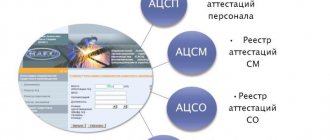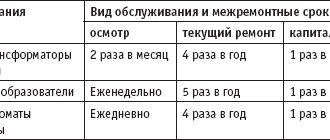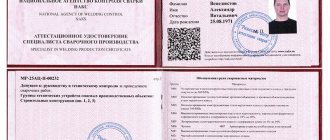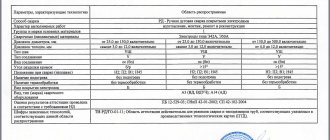Certification of welding technology is the process of verifying the organization’s compliance with the requirements of NAKS (National Welding Control Agency), namely the availability of technological capabilities, certified personnel and developed documentation. Makes it possible to carry out welding work at hazardous production facilities.
For any company carrying out reconstruction, installation or production using welding at hazardous facilities, it is mandatory to have a certificate of certification of welding (surfacing) technology. This procedure is regulated by document RD 03 615 03. In this article we will talk about the main points that you will encounter when receiving this document
Who is checking and what is being checked?
Certification is carried out by certification centers for certification of welding technologies (ACST). They are in every region; you can find them on the official website of the National Welding Control Agency in this section.
Directly during the certification process, the certification center commission checks the following:
- Availability and compliance with the requirements of production and technical documentation (PDD). These are technological instructions and technological maps
- Availability of certified personnel. 1 level 3 specialist (technologist) and at least two welders. Naturally, the ID must be valid
- Certified equipment and welding materials (Equipment and materials, as a rule, are purchased already certified
- Certificates for the metal or other material used (for example, plastic, if we are talking about ZN or NI welding)
- Test welded connections. During testing, welders weld samples (SSC), which are then tested in a non-destructive and destructive testing laboratory.
- Availability of an agreement with the laboratory that will test the CSS
Welding operator card
After completing training and testing as part of additional professional education under advanced training programs, a welder can be enrolled in the register of ASPM (Association of Welders of Polymer Materials) and receive a welder-operator card confirming his qualifications.
In all cases, personnel performing installation and welding of pipelines must undergo appropriate specialized training and confirm their qualifications based on the results of a practical exam. And, personnel working with polymer pipelines can present an operator identification card suitable for working with electronic documents.
More information about the ASPM welder card
Without being included in the register, the certificate of a welder or welding specialist (NAKS certificate) is considered invalid.
Procedure for certification of welding technology
The organization submits a package of documents to the certification center, which checks the application, PDD, technological maps, documents for people and equipment. AC NAKS issues a contract and an invoice for payment, then a welding technology certification program is drawn up for this enterprise. After this, a commission visit is organized to the site or production base of the company, where welders weld samples of the welded joints and the commission takes photographs. Next, the welded samples are transferred to the laboratory, where tests are carried out (mechanical and non-destructive). After which NAKS gives a conclusion on the readiness of the applicant organization to use certified welding technology.
This is what the certificate looks like And this is what the application looks like (also known as the distribution area)
Why is this so important
Production certification of welding technology is of great importance for those manufacturers who provide relevant services. The competence of NAKS directly includes making a decision on the possibility of using certain technological methods in a particular production, which is made based on the results of the assessment. For this reason, it should be treated extremely responsibly.
The inspection is initiated by the enterprise itself. It submits an application, prepares for the arrival of the commission, demonstrates to it the availability of modern equipment and qualified personnel capable of performing high-quality welding work. In addition, it is important that the company strictly observes all fire safety and labor laws. Certification of NAKS technology is considered mandatory for any hazardous production.
During a factory visit, inspectors conduct an assessment to determine whether the work process is safe and whether the resulting product will be of sufficient quality. No less importance is given to the study of materials used by welders.
Welding technology certification register
Data on the certification of the enterprise are entered into the public register on the NAKS website, which guarantees its authenticity. It is available at this link. It is better to check using the certificate number and the registration number of the certification center, since a search by the name of the organization does not always work correctly.
Why is NAKS certification needed?
Any professional activity must be confirmed by some document confirming the achievement of this qualification. This could be: a diploma, certificate, certificate, etc. Moreover, now there are many opportunities to acquire any diploma without training, but an unqualified specialist will be responsible for further actions. This is especially important when it comes to hard and dangerous work, because in this case you endanger not only your life, but also the lives of those around you. So, if you want to become a professional welder, then you need to pass certification according to NAKS standards.
The purpose of certification of welders and welding production specialists is to establish the adequacy of their theoretical and practical training, test their knowledge and skills, and also grant them the right to perform work at facilities controlled by Rostechnadzor.
There are four levels of professional training:
- Level I - certified welder;
- Level II - certified master welder;
- Level III - certified welding technologist;
- Level IV - certified welding engineer.
The knowledge and skills of certified welders and welding production specialists are tested by certification centers established in accordance with the current legislation of the Russian Federation.
Certified welders and welding production specialists are allowed to perform only those types of work that are specified in their certification certificates.
Advantages of a welder with a NAKS document
If there are several applicants for a welder position, the employer will give preference to an employee with a NAKS certification certificate. The NAKS welder is a clear advantage. In addition, having received a certificate, you have a justifiable reason to demand work with more complex qualifications and, accordingly, an increase in salary.
At facilities controlled by Rostekhnadzor, welders without a NAKS certificate are simply not allowed to work. Many private and public enterprises in their admission conditions directly indicate the presence of a NAKS certificate. Therefore, obtaining welder certification from NAKS makes you much more competitive in the labor market.
Certification of welders and welding production specialists by NAKS, unfortunately, is not a lifelong confirmation of a welder’s skill. This is a requirement of Russian legislation. Over time, the qualifications obtained must be confirmed. The NAKS welder certificate is valid for a certain time, different for different certification levels:
- 2 years - I level;
- 3 years - II level;
- 3 years - III level;
- 5 years - IV level.
During recertification, if possible, try to improve your qualification level.
Just like obtaining a certificate, renewing it is not free. In addition, if your experience as a welder is interrupted for more than 6 months, the certificate will no longer be valid. It is necessary to restore qualifications by taking exams again. The NAKS certificate is not a universal document.
It is valid within the specific type of work specified in the document. Accordingly, to gain access to other welding jobs, you must obtain a different certificate. NAKS technical device groups:
- PTO (handling and transport equipment);
- KO (boiler equipment);
- GO (gas equipment);
- NGDO (oil and gas production equipment);
- MO (metallurgical equipment);
- OHVNP (equipment for chemical, petrochemical, oil refining and explosion-hazardous industries);
- GDO (mining equipment);
- OTOG (equipment for transportation of dangerous goods);
- SK (building structures);
- KSM (steel bridge structures).
Employees of a hazardous facility (controlled by Rostekhnadzor) at which installation operations are supposed to be carried out or are undergoing must be certified.
Requirements for certified welders and welding production specialists
- Availability of general education and professional training.
- Completion of special pre-certification training.
- Availability of the required industrial work experience in the specialty.
Welders are subject to certification for the right to perform welding and surfacing work using specific types (methods) of fusion welding, carried out manually, mechanized (semi-automatic) and automated methods when working at facilities controlled by Rostechnadzor.
Types of certification of welders:
- Primary certification - welders who have not previously had permission pass.
- Additional certification is carried out by welders who have already passed the initial certification, but who want to expand the list of works specified in the certification certificates, or by welders who have had a break in welding work for more than six months.
- Periodic certification – all welders who have already passed certification undergo it in order to extend the validity of their certification certificates.
- Extraordinary certification - welders undergo before being allowed to perform welding after their temporary suspension from work due to violations of welding technology or repeated cases of poor-quality welded joints.
It is worth noting that to begin training and certification of welding production specialists, it is necessary to provide documents confirming the qualification categories of your workers according to the current system of the All-Russian Classifier of Professions, Employee Positions and Tariff Classes (OKZ 016-94), which were introduced by the State Standard of Russia (resolution dated 26.12 .1994, No. 367) or a certificate of completion of an independent assessment of qualifications for compliance with the requirements of professional standards in the field of welding. Additional training or advanced training of your employees in the field of welding production may be required.
Certificates and identifications issued by NAKS are a guarantee of quality and professionalism. NAKS has gained authority among production workers. Therefore, enterprises and specialists that have successfully passed certification in a self-regulatory organization have the right to count on priority when receiving an order for welding work.
What does NAKS stand for?
Not every welder will be trusted to assemble critical structures. And most likely the selected candidate will be an employee who has passed the NAKS certification. The correct abbreviation is: National Welding Control Agency. The name of the organization directly indicates the type of its activities: monitoring the qualifications of specialists engaged in the field of welding of metal structures. Not only welders, but also engineers and new technologies undergo testing stages within the premises of the establishment. So, a welder who has received a NAKS certificate is considered to be one whose level of training meets the requirements of production standards.
Official website NAKS register of welders - Find yourself by last name
In addition to licensing specialists involved in welding work, the agency also performs other functions:
- development of standards and relevant documentation;
- publication of methodological manuals;
- implementation of technical recommendations at enterprises;
- advisory support for complex processes;
- formation of commissions of experts and high-level specialists;
- personnel certification.
Various levels of NAKS certification
Having a NAKS certificate today is becoming an important condition for a welding specialist to be able to do his job. The national agency has developed a procedure and the necessary rules that a specialist must comply with. Certification is carried out by regional representative offices of the agency, after the conclusion of the certification commission. This is an authorized body, which includes qualified experts from NAKS, as well as specialists from Rostechnadzor.
NAKS experts have special certification; they are included in the agency’s own register. The NAKS certificate of a welder is intended to confirm his sufficient professional level and his suitability for performing certain work.
There are 4 levels of certification that a specialist can now undergo at NAKS;
- Certified welder;
- Certified master welder;
- Certified welding technologist;
- Welding engineer.
Mandatory certification will be required for specialists who want to acquire permits for particularly critical work performed in hazardous and difficult conditions. In addition, specialists of level above 1, who are managers of an enterprise or its division, must also undergo mandatory certification.
REGULATIONS
RD 03-614-03 “Procedure for the use of welding equipment in the manufacture, installation, repair and reconstruction of technical devices for hazardous production facilities” Open
Order of the Gosgortekhnadzor of Russia No. 14 dated January 28, 2004. “On the introduction into force of the Procedure for the use of welding equipment in the manufacture, installation and reconstruction of technical devices for hazardous production facilities” Open
Resolution of the Gosgortekhnadzor of Russia No. 102 dated June 19, 2003. “On approval of the Procedure for the use of welding equipment in the manufacture, installation, repair and reconstruction of technical devices for hazardous production facilities” Open
How to get a certificate
Any specialist who has the appropriate education, qualifications and the necessary professional training can undergo certification.
- The candidate submits an application, documents on education and qualifications, and a certificate of employment to the certification center.
- Within 3 days, makes a decision on approval of the application. If the application is rejected, the certification center will notify you in writing of the reason for rejecting the application.
- Certification of welders consists of testing knowledge of welding theory and practical skills of a specialist. For level 1 certification, the test includes at least 15 theoretical questions; for welders of levels 2, 3 and 4 – at least 20 questions. Theoretical knowledge is tested using a computer or in writing using teaching materials developed by the certification body. An additional interview may also be conducted. The theoretical part is considered passed if the candidate answers 80% of the questions correctly.
- When testing practical skills, they are guided by NAKS and GOST documents, which regulate the conduct of practical tests. The test is passed if the specialist has completed a practical task in accordance with the declared area of certification. A candidate who successfully passes the test is issued a certificate.
- If a candidate fails the theory or practical skills test, he has the right to retake this part within 3 months at the same certification center. A candidate who does not pass the re-test is considered to have failed the certification and receives a written refusal of certification.
- The certificate number of a certified specialist is entered into the NAKS register. Using the registry, you can find out when the certification was carried out, the scope of certification, and the validity period of the document.
For welders the certificate is valid for 2 years, for welding production employees of levels 2 and 3 it is valid for 3 years, for level 4 – 5 years.











